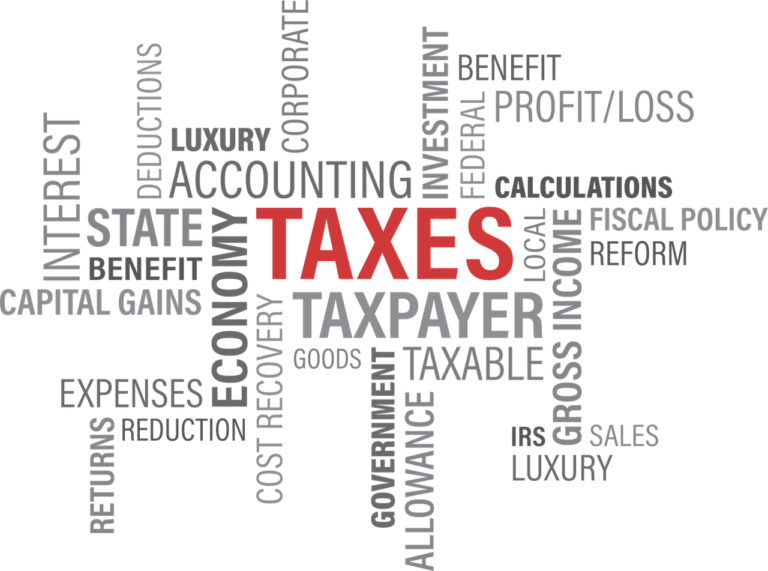Tax Season is often a time for panic for both businesses and individuals. Whether you’re determined to file your taxes yourself, or would rather have a tax professional do it, knowing what documentation you’ll need can save you lots of stress.
For business owners who have already navigated the process of starting a successful business, it is important to maintain proper tax documents and records. Proper documentation can help individuals and businesses to avoid the possibility of inaccurate reporting during filing season. Each year millions of e-filed returns are suspended and delayed processing due to discrepancies between the amounts claimed on tax returns and the amounts reported to the IRS.
The only thing worse than an already hectic filing season is corresponding with the IRS about a tax return that was filed incorrectly. You could save both yourself and your business undue stress by having the following tax documents ready to go before filing your tax return(s).
Personal Identification
You will need to bring documentation to either your CPA or tax preparer that proves your legal identity. This can be any of the following:
- Social Security Number (SSN)
- Individual Tax Identification Number (ITIN)
- Passport
- Driver’s license
- Government/State-issued Identification card
For business owners, here are some business identification documents you’ll need:
- Business name
- Business address
- Accounting method
- Employer Identification Number (EIN)
- State tax identification number
Dependent Identification
You must provide legal identification such as a social security number, for every dependent that you claim on your tax return. If married filing separately or divorced, you’ll need proof that you have the legal right to claim each dependent reported on your tax return and that these dependents are not also being claimed on another tax return.
If you have the legal right to claim a dependent who has already been claimed by another person, DO NOT claim that child as a dependent. Instead, contact your CPA or tax preparer for more guidance.
Income Documents
If you worked part-time or full-time during the year as an employee of another, you would need to present a W-2 to file your taxes. Employers are required to send out W-2 forms by January 31st or the next business day of each year. If you did not receive your W-2 or have misplaced them, reach out to your employer for a copy of these tax documents. Alternatively, you may still be able to file your taxes without a W-2 by filling out Form 4852, “Substitute for Form W-2, Wage, and Tax Statement.”
Self-employed individuals who have employees are also required to send out 1099s by January 31st of each year. A Form 1099 is considered by the IRS as an “information return” because it is a record of income earned outside of your regular employment. The business or entity that’s issuing a Form 1099 is required to send copies to both you and the IRS. Thus, if you received Form 1099, you MUST present that tax document when filing your tax return.
There are several types of Form 1099 that you or your business may receive this filing season. Below is a list of the common Form 1099s that you may receive:
- 1099-C (cancellation of debt)
- 1099-DIV (dividend income & distributions)
- 1099-G (unemployment income)
- 1099-INT (interest income)
- 1099-K (business or rental income)
- 1099-SA (health savings account)
If you’re still missing income documents or 1099 forms, do NOT file a tax return without it. Instead, speak to your CPA or tax preparer about filing an extension of time to file your tax return while you gather the necessary tax documents.
Expenses Documents
A large expense bill such as medical or dental expenses that you paid during the year could allow you to deduct the Itemized deduction instead of the standard deduction. Therefore, it is always good to have these tax documents accessible when filing your tax return.
Common expense-related documents for individuals are:
- Charitable contributions
- Certain education expenses (if claiming the American Opportunity Credit or the lifetime learning credit)
- Medical expenses
- IRA contributions
- HSA distributions
Common expense-related documents for businesses are:
- Depreciation expense
- Business use of home
- Software costs
- Advertising
- Meals
Credit Documents
Tax credits are a dollar-for-dollar reduction of the amount of income tax that either you or your business owes. While this presents a great savings opportunity, it also comes with the added pressure of documentation to show that the credit was accurately applied. Tax credits must be claimed on a separate schedule, attached to your tax return.
Some of the common tax credits for individuals are:
- Earned Income Tax Credit (EITC)
- Child Tax Credit
- Child and Dependent Care Credit
- American Opportunity Credit
- Lifetime Learning Credit
Some of the common tax credits for businesses are:
- General business credits (Form 3800)
- Work Opportunity Credit
- Investment Credit
- Credit for Increasing Research Activities
In conclusion, I hope this tax season you’ll take the extra time to properly compile these necessary tax documents to prevent your tax return from being delayed or worst, rejected.





Pingback: How To Prepare Your Taxes as a Content Creator? - Tax Tips With A CPA